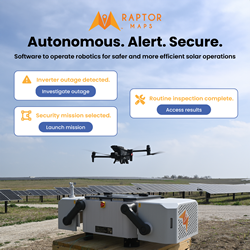Massachusetts Paves the Way for More Renewable Energy in the Commonwealth
The Commonwealth has seen a huge surge of interconnection applications, which shows no signs of slowing down as interest in renewable energy continues to grow.
March 14, 2013
The Interstate Renewable Energy Council, Inc. (IREC) promoted many of the changes adopted by the DPU through its public comments and its participation in the DGWG in an advisory role. IREC commends the efforts of the DPU and the DGWG, which should encourage even more renewable energy growth in Massachusetts.
In recent years, the Commonwealth has seen a huge surge of interconnection applications, which shows no signs of slowing down as interest in renewable energy continues to grow. The revised interconnection procedures adopted yesterday should allow these applications to be processed more efficiently, and more renewable energy projects to come online.
"Massachusetts' revised interconnection tariff represents a major improvement," said Erica Schroeder of Keyes, Fox & Wiedman LLP who represents IREC. "Overall its requirements are more clear and transparent, and more appropriate for the high volume of interconnection applications that Massachusetts is seeing."
The changes adopted by the DPU touch on various parts of Massachusetts' interconnection process, from before an application is submitted through the issuance of the interconnection agreement and construction.
For example, the DPU has approved a mandatory pre-application report for projects larger than 500 kilowatts. The pre-application report should help applicants prioritize among potential locations and configurations. In addition, it should reduce the number of speculative applications that have bogged down the interconnection process in the past.
The updated Massachusetts tariff also includes several improvements to the technical screens for the simplified and expedited processes, which allow certain projects to move more quickly through to interconnection.
A more robust and transparent supplemental review process is another critical improvement in the new tariff. Supplemental review allows projects that fail the Simplified and Expedited Screens to still interconnect without full study. To do so, these projects must pass the three supplemental review screens, which ensure that the project will not affect the safety and reliability of the grid.
This improved supplemental review process should save both utilities and renewable developers time and money by avoiding unnecessary study. It should also allow more projects to interconnect more quickly, while still supporting a healthy grid.
The DPU cited a number of open issues for stakeholders to pursue with respect to interconnection going forward, including the development of a group study process to study multiple, related applications concurrently. IREC agrees that this is a critical issue to resolve in Massachusetts and plans to participate in the development of an effective group study process.
Another task that the DPU identified is to determine the appropriate penetration screen for Supplemental Review. The DPU adopted the more conservative option in its order yesterday-67 percent of minimum load-but required the new Technical Standards Review Group to spend the next year considering whether or not to increase the screen up to 100 percent of minimum load.
"Using 100 percent of minimum load as the penetration screen in supplemental review is an emerging best practice nationally, as we've seen, for example, in California and Hawaii," said Schroeder. "IREC hopes that Massachusetts will join these other states as a renewable energy leader and adopt the 100-percent screen."
By February 2014, the new Technical Standards Review Group must provide a proposal regarding the supplemental review penetration screen to the DPU. IREC plans to provide input in the development of this proposal.
In the meantime, Massachusetts utilities must file updated individual tariffs in accordance with the revised tariff within 30 days of the order. They must implement all non-tariffed changes adopted by the order immediately.
About IREC
The Interstate Renewable Energy Council, Inc. (IREC) is a non-profit organization accelerating the use of renewable energy and energy efficiency since 1982. Its programs and policies lead to easier, more affordable connection to the utility grid; fair credit for renewable energy produced; best practices for states, municipalities, utilities and industries. IREC is a respected resource and national leader in quality assessment, workforce development, consumer protection and stakeholder coordination. Since 2005, IREC has provided a foundation for the growing clean energy workforce through the credentialing of trainers and training programs and through the development of quality standards. For more information, visit http://www.irecusa.org.
Featured Product

Raptor Maps - The integrated operating system for end-to-end solar management
Operate autonomous drones and other robotics technology on your solar farms with Raptor Maps' robotics operations platform. Our end-to-end solution allows you to build and schedule data collection missions, to analyze collected data through our analytics engine, and to address identified issues through our remediation intelligence suite. From construction monitoring to substation inspections to SCADA-alert generation missions, Raptor Robotics gives your team unparalleled insights into the health and status of your project. Improve the safety, efficiency, and scale of your operations with Raptor Robotics.
